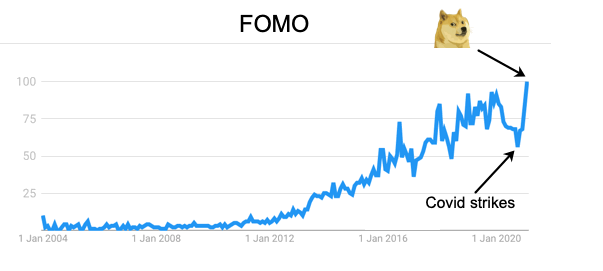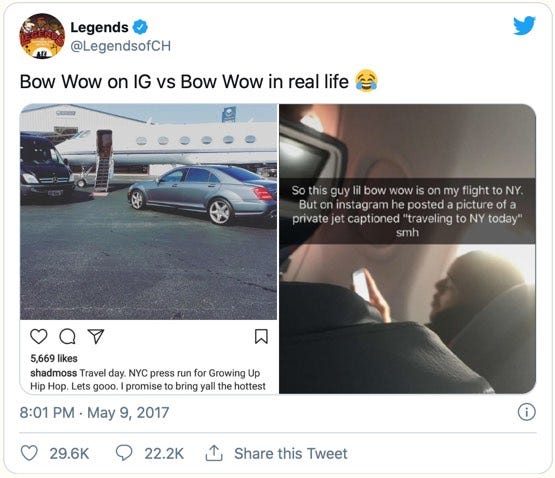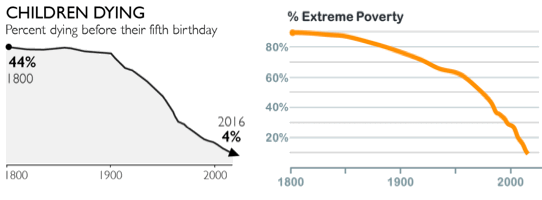Comparison is the thief of joy
It was Theodore Roosevelt who said, "Comparison is the thief of joy". The meaning being; when we compare ourselves to others, we feel inadequate. Theodore was right, wasn't he?
We are living in a time of peak comparison, the popularity of the term "FOMO" is evidence of this. By using Google Trends as a proxy, we can see that we're at peak FOMO. The chart below shows a crash in FOMO search volume when coronavirus hit. It's fair to say that it's harder taking picture-perfect photos that make followers jealous when everyone is stuck in lockdown.
But we're back to all times highs, mostly driven by Meme stocks, Bitcoin, Dogecoin ...you name it. It's another area of life that social media tells you that you're falling behind in.

Social comparison theory
Let's admit it, when a coworker tells us about how great things are, there's at least some annoyance. But whenever there's bad news, we're much eager to hear it, we console whomever and wish them better.
This is part of social comparison theory which states that we measure how we're doing by comparing ourselves to others. This can be good, for example, if you don't exercise but all your friends attend the gym regularly, this comparison could be the driving force to get you fit.
So does this mean Theodore Roosevelt was wrong when he said "Comparison is the thief of joy"? It's nuanced. For starters, there's two types of comparison: upward and downward comparison. In general, downward comparison makes us feel better (comparing ourselves vs people worse off) and upward comparison generally makes us feel worse. But upward comparison isn't always unhealthy, it's easy to imagine from an evolutionary perspective why upward comparison was useful. If hunter-gather band members were better at making tools than you, this would be motivation to get better. But in the modern-world, our prehistoric genes are being subjected to unfair comparisons that our mental software can't handle.
When comparison is unhealthy
Just like we can't tell our eyes to stop seeing or our ears to stop hearing, we can't stop our subconscious from comparing. There's rarely a day that goes by without comparison. And it's the unfair comparisons to the unattainable that lower our self-esteem; whether that's comparing our beauty, wealth, intelligence or social lives.
In Barking Up the Wrong Tree the author describes why comparison is such a problem now that we have so much media:
Think you’re good at something? There’s someone on the Internet who is better, works less, and is happier. They have nice teeth too. For most of human existence when we looked around us there were one or two hundred people in our tribe and we could be the best at something. We could stand out and be special and valuable. Now our context is a global tribe of seven-plus billion. There’s always someone better to compare yourself to, and the media is always reporting on these people, which raises the standards just when you think you may be close to reaching them.
If no one knew
Try and imagine this thought experiment for a moment ...overnight something happens, wherein everyone you know and everyone you see is doing much worse than you. Your life is identical to how it is today though, same home, job, friends and possessions but you're now top of the pile. Your social media feed is awash with photos and stories of hardship. How do you feel? If you can immerse yourself in this thought for a small while then it's hard not to feel different. There's certainly no envy, most people would feel grateful and probably happier with their lot. But your life is the same which goes to show how impactful compassion can be on wellbeing.
If we lived in a media-free world with no images of beauty and no one knew how others were doing financially and socially, then the reality is we'd probably be happier.
The sad game of comparison
When we make unhealthy upward comparisons, it's on the assumption that the person we are comparing ourselves to, is better or more content than us. But it's often not true. The American rapper Bow Wow was rumbled when he posted a photo of a private Jet (which was a stock photo) to inform his fans of his luxury transport en route to New York but was busted by someone sitting behind him in economy class. It's an unfortunate state of affairs that social media has become a ridiculous game of one-upmanship. Why do so many post about their lives in an effort to impress? Who are they trying to convince, is it their followers or themselves?
Doing more downward comparison
We live in a world where we stare at screens for large parts of the day, but we're rarely consuming content that makes us feel fortunate. Quite often we are referencing our life versus a paragon. What a shame that so few people are interested in learning about history as it's clearly an antidote. I often use the example of child labour in Victorian times, most people are aware it happened but few realise how prevalent it was. Our lives in comparison are extremely fortunate. And this is the point Stephen Pinker and the late Hans Rosling made in Enlightenment Now and Factfulness, life is much better than the media have us believe.
Social media
Whenever we look back at how we once lived, there are things that make us think WTF? We were told that smoking was healthy, we didn't allow women to vote, we had slaves and sent children down coal mines. But we shouldn't rest on our laurels, from time-to-time I like to think, what are we doing today that future generation will think WTF?
For me, the answer is social media. It's bad for mental health and addictive just like any other drug. I believe future generations will be shocked at how we allow children from an early age to get hooked with potentially irreversible consequences on their personalities. I sympathise with parents who have an impossible job. The age limit for Instagram and Facebook of 13 is absurd. Steve Jobs, Bill Gates and other Silicon Valley elites were on to something by limiting their children's use of technology.
Just like the tobacco companies were too powerful, so too are Big Tech. As more data points to the detrimental effect tech-overuse has on brain development then I would expect children's exposure to technology to be very different in the future than it is today.
The solution no one likes
It's easy to reflect and agree that comparing our lives to others doesn't make sense and we should be grateful for what we have. This isn't a solution though as we can’t change how our brains operate. Abstinence is the best solution, so if you're an Insta or Facebook addict then deleting your account is likely what's best.
We're surrounded by what's obviously unusual behaviour, social media addicts on public transport, in restaurants and anywhere it's possible to get a fix. I deleted my Facebook account a year ago and should have done it sooner, it's like being an ex-smoker now, since quitting it's hard to understand what the appeal was in the first place.
It's not just social media, it's media in general. Even in situations as benign as watching interviews with high achievers, I sometimes question whether this is useful or is it just making me feel like I'm underachieving in life. There's a fine line between motivation and demoralisation.
Theodore Roosevelt made the observation that comparison is the thief of joy back in the late 19th century when there were a fraction of the comparison mediums we have today. One thing is for certain, we all need to be conscious of the information we consume. Just like the food we eat, we should only consume good quality information from reliable sources and not too much. Substitute screen time for book time. So yeah, there's the solution no one likes: if you want to reduce upward comparison: cut screen time (read a book instead) and study history to realise how fortunate you are.
I love a good quote and "comparison is the thief of joy" is one of my favourites. What are your thoughts? If you have any, please leave them in the comments section below.





